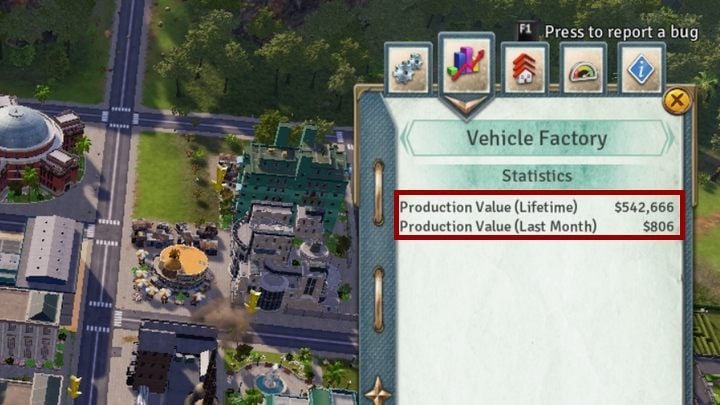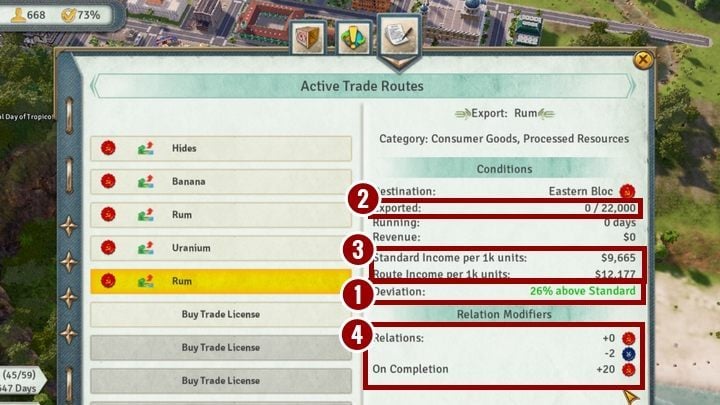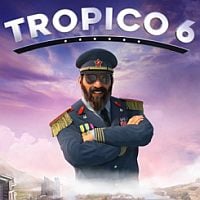Tropico 6: Finances and trade Mechanics
Last update:
The most important thing that will allow you to stay in power in Tropico 6 is to have economic stability. Your country must earn money to sustain itself. Otherwise, you will keep getting into more and more debts. This will also affect your reputation among the citizens. Read this chapter to learn how to maintain cash flow.
- Where does my money go?
- Factories are the key to success
- Transport is crucial
- Keep an eye on trade routes
- Tourism
Where does my money go?
Besides the obvious reason, that is making new buildings, you also need to consider other costs of your country. The majority of the cost comes from payment for your employees and maintenance costs of your buildings. Also, some of the decrees will also require regular fees.
Factories are the key to success
Factories are your main source of income. They turn basic goods into items that are more profitable to export. The later the era, the more advanced factories you can build.
Build one of the newly unlocked factories right after you enter a new era. This choice depends on which island you own and on its natural resources. These resources will allow you to make valuable goods. Thanks to that, you won't feel that buildings from other categories belonging to a new era have higher maintenance costs.

Vehicle Factory is extremally profitable. This building allows you to make cars out of steel and rubber. The goods manufactured by this factory are very expensive meaning that you will earn a lot of money. The only downside to this factory is that you need to manufacture steel in Steel Mill which extends the whole process.
Remember to upgrade your older factories. This process costs money but upgraded factories have better efficiency - your investment will pay off in the future.
Transport is crucial
All manufactured goods must be transported. The stoppage will lead to a lack of resources or to overfilling your warehouses. You need to maintain the right number of drivers. Place Teamster's Office near every bigger group of factories. Thanks to that, your goods will be transported on time.
Build more than one bridge connecting your islands. If the exchange of goods happens regularly, it can lead to a traffic jam - making transportation time longer.
You should also remember to build a few Docks. Do that and you will avoid a situation where all ships transporting goods are docking in the same place. More Docks will reduce transportation time. You can also research and issue Speedway edict which will increase the speed at which cars can drive on roads.
Keep an eye on trade routes
Besides the standard form of exporting goods (items are transported to a port and then loaded in larger quantities on a ship), the game also allows you to use another form of trading - trade routes.
In the standard form of exporting, your goods are transported to the nearest port. Their price is converted at market prices, they are loaded on a ship and then they get exported from Tropico.
You sign trade routes for specific goods and nations. These goods can be exported or imported. Trade routes can be profitable, especially when you sign them with a friendly nation. Prices offered by that country will be much better.
When you are about to sign a trade route, be sure to check the percentage difference between the market price and the one offered by another country [1]. You can also decide the number of resources in this offer [2]. Check your revenue [3] and relations modifier for this particular nation [4]. Below you can find an exemplary trade route agreement.

Customs Office is unlocked during the Cold War. This building allows you to make even more money from exporting goods.
Tourism
Your budget can also improve thanks to the tourists. During the cold war you will gain access to hotels. This will enable you to improve this part of your economy. Each tourist that enters your archipelago will have to pay an entry fee. Additionally, he or she will spend money in various entertainment buildings.
More detailed information about tourism can be found in a separate chapter.
- Tropico 6 Guide
- Tropico 6: Game guide
- Tropico 6: Mechanics
- Tropico 6: Finances and trade Mechanics
- Tropico 6: The Broker Mechanics
- Tropico 6: Technological growth
- Tropico 6: Raids Mechanics
- Tropico 6: Tourism Mechanics
- Tropico 6: Building Mechanics
- Tropico 6: Happiness and approval Mechanics
- Tropico 6: Natural disasters Mechanics
- Tropico 6: Politics and constitution
- Tropico 6: Edicts
- Tropico 6: Mechanics
- Tropico 6: Game guide
You are not permitted to copy any image, text or info from this page. This site is not associated with and/or endorsed by the developers and the publishers. All logos and images are copyrighted by their respective owners.
Copyright © 2000 - 2025 Webedia Polska SA for gamepressure.com, unofficial game guides, walkthroughs, secrets, game tips, maps & strategies for top games.
